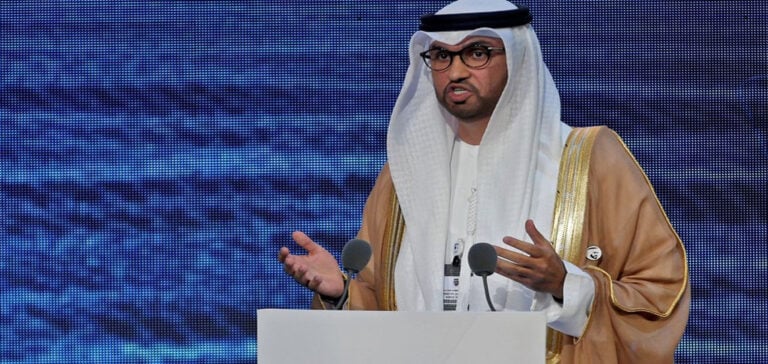Sultan al-Jaber expressed his support for the oil and gas giants in their role as COP28 giants in the fight against climate change. In a speech to energy industry leaders in Abu Dhabi, he encouraged these companies to significantly reduce greenhouse gas emissions over the next seven years. This statement comes in the run-up to COP28, which kicks off on November 30 in Dubai, a key event in the global climate talks.
The energy industry’s role in combating climate change
Sultan al-Jaber, President of COP28 and CEO of the United Arab Emirates Oil Company, urged representatives of the energy sector to play a central role in resolving the climate challenge. He asserted that the oil and gas industry had the capacity to transform the global debate on climate change. However, to meet the 2015 Paris Agreement targets of limiting global warming to 1.5 degrees Celsius, a 43% reduction in greenhouse gas emissions is needed over the next seven years.
Sultan al-Jaber called on his peers to be more ambitious in their commitments to reduce CO2 and methane emissions. He also encouraged the industry to invest heavily in renewable energies, while developing carbon capture and hydrogen production technologies.
Criticism and defense of the oil industry
The appointment of Sultan al-Jaber as head of COP28 has drawn criticism fromenvironmentalists, who are concerned about the oil industry’s growing influence on climate talks. Despite this, al-Jaber reaffirmed that the transition away from fossil fuels was inevitable and necessary.
The CEOs of the major oil companies present in Abu Dhabi underlined the current dependence of the global economy on fossil fuels, and warned that reduced investment in this sector had led to higher energy prices.
TotalEnergies has announced its intention to pursue its oil and gas projects while investing massively in the energy transition. TotalEnergies CEO Patrick Pouyanné has promised a 2-3% annual growth rate in the oil and gas sector, while allocating $40 billion to decarbonization projects.
For his part, Shell CEO Wael Sawan unveiled a budget of $10-15 billion over the next three years for low-carbon solutions. He called for concrete commitments to reduce methane emissions, a particularly potent greenhouse gas.
A unique opportunity for the energy sector
COP28 offers a unique opportunity for the oil and gas industry to become actively involved in the climate talks. Amanda Leland, Executive Director of the Environmental Defense Fund, stressed the importance of this COP for negotiations on methane and industrial decarbonization. It noted that the sector was responsible for almost half of all methane emissions, a gas whose impact on the climate is 80 times more powerful than that of carbon dioxide over the next two decades.
Ultimately, COP28, led by an oil industry leader, represents a crucial step in defining future actions to combat climate change. The forthcoming discussions will determine whether the energy giants are prepared to take concrete steps to address the climate emergency.






















